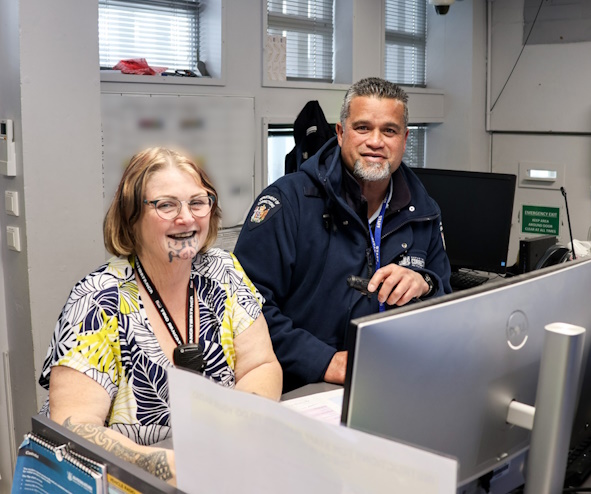 Christchurch Women’s Prison has marked a historic moment by calling a headcount in te reo Māori, the first time it has been done.
Christchurch Women’s Prison has marked a historic moment by calling a headcount in te reo Māori, the first time it has been done.
Senior Corrections Officer Lance Rollo, with support from Pou Tikanga Mairehe Louise Tankersley, called out to staff over the radio to do a headcount within the prison, in te reo Māori. Staff were encouraged to respond back in te reo Māori with their counts. Non-custodial staff also were invited to participate by doing a “colleague count”.
“It was just beautiful,” says Whaea Louise. “It made my heart soar to see and hear that in te reo Māori.”
The initiative was to recognise the day the Māori Language Petition was presented to Parliament in 1972 on September 14, which became the first Māori Language Day.
“It was a significant point in history for the reclamation of te reo Māori and now we have a national “Māori Language Moment” when people all over the country do activities in Te Reo. One of our staff came up with the idea that doing a headcount in te reo Māori would be a great opportunity to get all staff involved and integrate the language into our work.”
While the headcounts are usually done in English, Whaea Louise says managing it in te reo Māori was a “huge achievement” for the prison and its staff. “A lot of people were very nervous, very worried about how they would sound but we’ve been encouraging everybody just to have a go. They’ve all been practicing and I’m so proud of how much effort staff put into the moment.”
Lance was grateful to have Whaea Louise at his side when he made the call for the headcount over the radios.
“I’m not going to lie - today’s experience was very daunting at first but I did enjoy it once we got going,” he says. “I am the eldest of 5 kids and my mother and I are the only whānau members who don’t speak te reo Māori (I’m quite whakamā about that to be truthful).”
Since working with the Department, he has enjoyed learning more of the language and integrating it into his work.
“I am proud to take a leading role in events like this, not only to get me out of my comfort zone, but also as an opportunity to practice what I’ve learnt.”
A high percentage of women in the prison are Māori, which adds to the responsibility under Te Tiriti (the Treaty) and the commitments the Department has made to work towards better outcomes for Māori in prison, which includes normalising the use of te reo Māori.
“It’s something that’s really difficult for a lot of people,” says Whaea Louise. “Staff here were willing to give it a go, and I feel super proud of them for carrying out that headcount today.”
“We will certainly encourage other prisons to do something similar and support te reo Māori as much as possible and be the change we want to see.”

